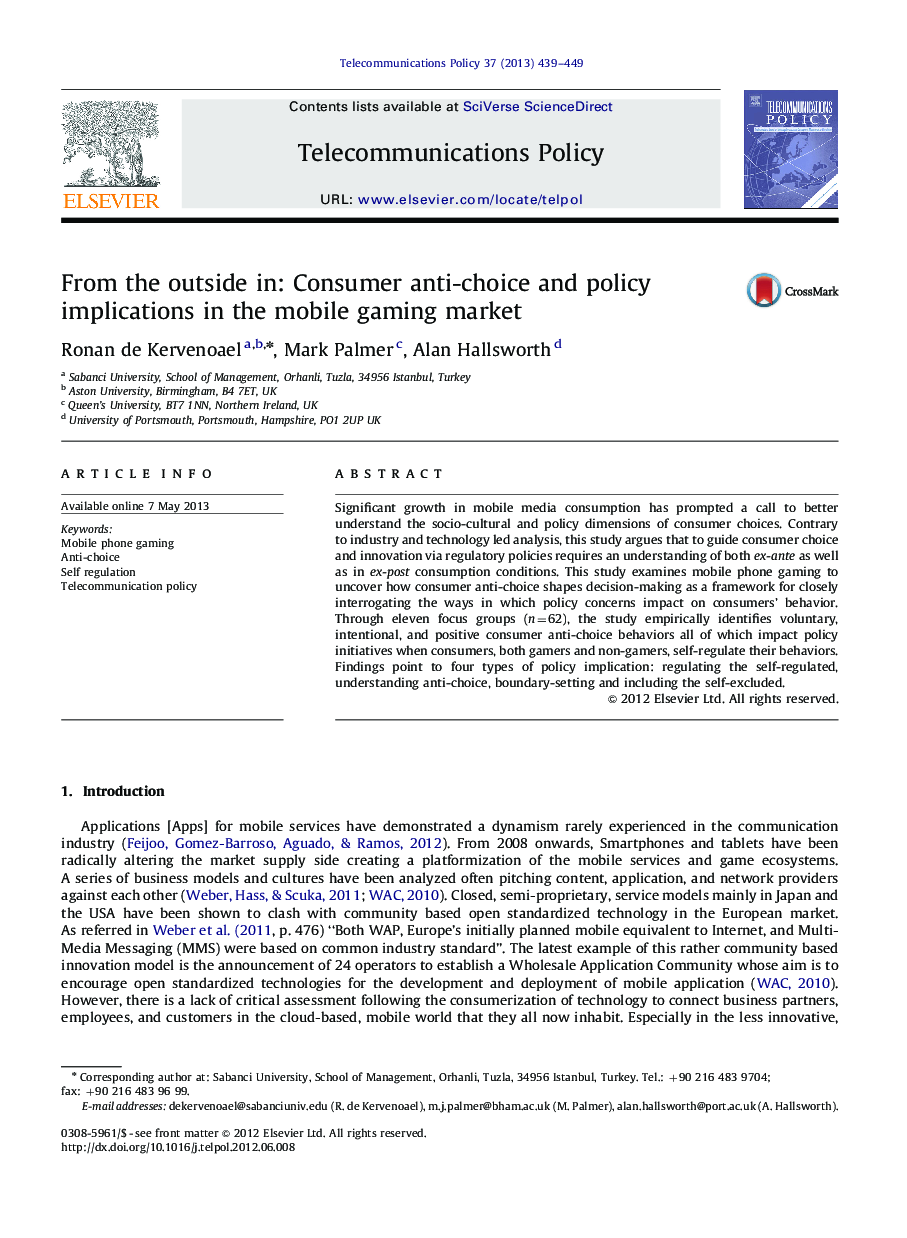| Article ID | Journal | Published Year | Pages | File Type |
|---|---|---|---|---|
| 556928 | Telecommunications Policy | 2013 | 11 Pages |
Significant growth in mobile media consumption has prompted a call to better understand the socio-cultural and policy dimensions of consumer choices. Contrary to industry and technology led analysis, this study argues that to guide consumer choice and innovation via regulatory policies requires an understanding of both ex-ante as well as in ex-post consumption conditions. This study examines mobile phone gaming to uncover how consumer anti-choice shapes decision-making as a framework for closely interrogating the ways in which policy concerns impact on consumers’ behavior. Through eleven focus groups (n=62), the study empirically identifies voluntary, intentional, and positive consumer anti-choice behaviors all of which impact policy initiatives when consumers, both gamers and non-gamers, self-regulate their behaviors. Findings point to four types of policy implication: regulating the self-regulated, understanding anti-choice, boundary-setting and including the self-excluded.
► Identification of positive self-regulating activities underlines the importance of anti-choice to policy. ► Mobile gaming policy makers need to look beyond technical quality criteria. ► Non-gamers do matter and they indirectly, but positively, shape policy to achieve broader social goals.
